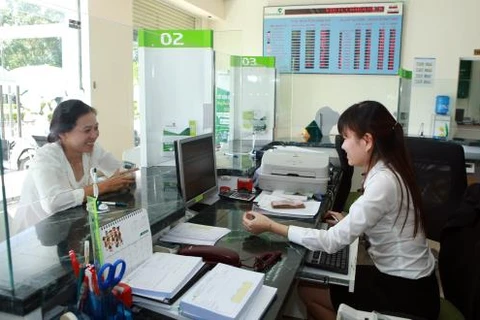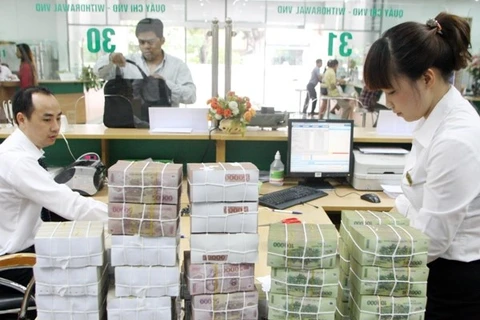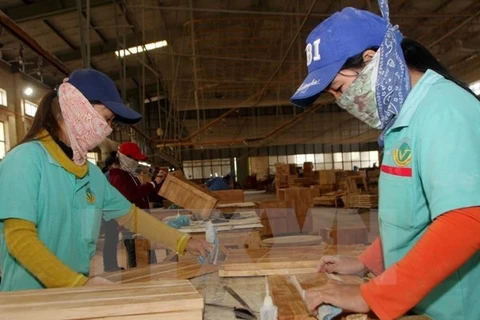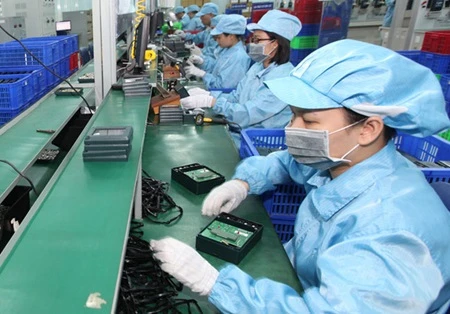Small- and medium-sized enterprises (SMEs) contribute 40 percent of national GDP but the proportion is expected to fall as competition will increase under new international free trade agreements.
Under such a scenario, SMEs will likely experience a smaller market share, decline in production, and more bankruptcies.
SMEs make up 95 percent of total national enterprises. The economy also includes 3.5 million privately run household businesses, 10 million farmer households and 140,000 co-operatives.
SMEs are involved in every kind of business, including retail, wholesale, manufacturing, production and in fields that are typically State-owned, such as electricity, gas, water supply, mineral exploitation, information and telecommunications.
Five percent of SMEs are involved in other public services such as education and healthcare.
"SMEs have contributed 40 percent of GDP, 61 percent of jobs, 31 percent of export turnover, 30 percent State budget and attracted 38 percent of social investment," To Hoai Nam, Deputy Chairman of the Small-and Medium-Sized Enterprises Association, was quoted as saying in the Sai Gon Giai Phong (Liberated Saigon) newspaper.
"SMEs' economic efficiency is only 0.7 times that of foreign invested companies, but 2.3 times higher than State-owned enterprises," he added.
Nguyen Thang, Director of the Society and Science Institute's Forecast and Analysis Centre, said: "The size of SMEs is smaller because their business fields are more limited. Since 2010, most SMEs have cut their workforce by nearly a third. For individual workshops, most of them only have two to four workers."
Besides being limited in size, they are weak in creating value-added products. Most SMEs do business in trade and service, while enterprises working in manufacturing and production with high-level links with the international market are small.
To support SMEs, the Government and authorities have created 14 programmes for information management, 15 for technology development, and eight others for finance and tax.
However, many experts said that authorities had designed policies but not carried them out. No report had been issued on the effectiveness of such policies to the SME community.
"These policies only support SMEs, but they are not able to protect them," Nam said.
While State-owned enterprises, most of them being groups or corporations, have large investments, SMEs are limited in capital, lack high-quality human resources and modern technology and have poor business governance. They also find it hard to borrow loans from banks.
Sometimes, SMEs have to borrow loans at interest of over 20 percent each year.
"SMEs mostly do not receive legal and information assistance to meet international standards for their products and services so they can compete with foreign companies," Nam added.
"We can find global plastic market analysis information much easier than figures about the local market," Nguyen Hoang Ngan, General Director of Binh Minh Plastics Joint Stock Company, said.
The company has sought support from all authorities and business associations, but has found little information.
In addition, the SME community lacks maturity and is not large enough to join global supply chains.
SMEs in agriculture, garments and textiles, footwear, food processing and wood furniture depend on imported material and production technology.
Under global integration, Vietnam has new opportunities to develop SMEs in multi-national groups with leading technology.
"To take advantage of this opportunity, the Government should release new policies to support SMEs so they can overcome capital limitation, reduce risks, and increase high-quality human resource training and other conditions to promote reform and creativity," Nam said.
"Developed nations have certain conditions for SMEs. SMEs don't need to become bigger. They only need to develop a stable market share and have close links with global supply chains" he added.-VNA
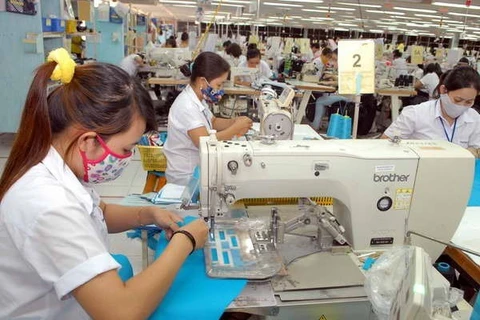
SMEs must seek place in global supply networks
The domestic small- and medium-sized enterprises (SMEs) should define positions in the global supply chain to gain success in integrating into the world economy.

